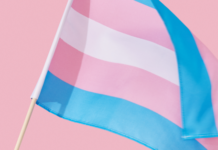By Marjorie Jackson
The Washington Stand
Last week, Ulta Beauty sparked controversy by inviting transgender influencer Dylan Mulvaney, a biological male in the process of transitioning, as a podcast guest for the episode, “The Beauty of … Girlhood.” In a clip from the hour-long episode that has circulated the internet, Mulvaney tells the host of aspirations to become a mother and raise children.
“Now I know I can find love, I know I can still be a performer, I know that I can have a family, I want to be a mom one day, and I absolutely can,” Mulvaney tells “gender-fluid” host, celebrity makeup artist David Lopez. “And that’s why the narrative still has a long way to go, because when I was grieving boy Dylan, I didn’t know those things were even accessible to me.”
The two LGBTQ+ individuals, both biological men, discussed Dylan’s transitioning journey, which has been documented extensively with a daily TikTok series chronicling “days of girlhood” through Dylan’s commentary on periods, surgeries, emotions, and shopping. The podcast is part two of a digital campaign by Ulta to redefine beauty norms; the first podcast episode being, “The Beauty of … Fatness.” The discussion between Mulvaney and Lopez on girlhood did not sit well with the retailer’s largely female clientelle, many of whom responded with indignation, saying that the company was making a mockery of women.
Upon request for comment, Ulta Beauty gave The Washington Stand their official response to the pushback: “The premise of The Beauty of … is to feature conversations that widen the lens surrounding traditional beauty standards. We believe beauty is for everyone. And while we recognize some conversations we host will challenge perspectives and opinions, we believe constructive dialogue is one important way to move beauty forward. The intersectionality of gender identity is nuanced, something David and Dylan acknowledge themselves within the episode. Regardless of how someone identifies, they deserve our respect.” Ulta has turned off comments on Mulvaney’s episode and on social media.
As the outrage spread, many women are calling to #BoycottUlta, a trending topic on Twitter where angry customers are vowing to take their business elsewhere. Some have even been using the hashtag #womanface, likening biological men dressing up like women to dressing in blackface.
“Those are two adults,” one Twitter user responded. “It’s very creepy to hear them talking about girlhood when neither has never experienced it.” Another Tweeter echoed, “Two males doing a podcast called ‘the joy of girlhood’ is the definition of mansplaining.”
“You had two grown men tell actual women what it’s like to be a girl, as if they could have any earthly idea,” conservative commentator Allie Beth Stuckey tweeted. “That has nothing to do with beauty; it’s lunacy, and it’s insulting.”
A slew of tweets lashed out at Ulta’s campaign to redefine beauty, many echoing this sentiment: “Why didn’t you get a woman on? We are your primary target market, are we not? #BoycottUlta.”
FRC’s Jennifer Bauwens, director for the Center of Family Studies, told TWS that she is concerned about the message that Ulta is sending to young women about girlhood. “I think what’s sad is how young girls [are being told] that if they just change themselves or create a new self, then they can find happiness and create whatever image they want. That is, in fact, a false reality. And it’s so unhealthy, promoting disassociation from who we truly are. In the short term, it might look pretty. But in the long term, it’s very destructive — psychologically, spiritually, and certainly physically with some of the procedures that are attached to the transgender ideology.”
“I think we’re seeing a real shift in the polling, and we’re seeing that people are not accepting transgender ideology. And so as much as it continues to be pushed from different corporations and political figures, the general public is wondering what on earth is going on and what is this dissociation of reality all about,” Bauwens continued. A Washington Post-University of Maryland poll found that, despite growing tolerance for transgender-identifying individuals, an overwhelming majority of respondents believe biological men should be kept out of women’s spaces, such as sports teams.
Bauwens says the backlash towards Ulta is indicative of the public majority opinion. “I think … the gut reaction is, ‘This is not right. This is not going to lead us down a path of of health, of a healthy society.’”
Ulta’s girlhood podcast isn’t the first time a biological male has been chosen to represent women in the past few years of culture. Caitlyn Jenner received Glamour Magazine’s Woman of the Year 2015 award. Biden HHS appointee Rachel Levine was one of USA Today’s 12 “Women of the Year” picks this year. Collegiate swimmer Lia Thomas took home the NCAA victory in the women’s 500-yard dash with the season’s fastest time, receiving a D-1 title and an NCAA Woman of Year Award nomination. Last summer, Kataluna Enriquez won the title of Miss Nevada USA 2021, going on to compete in Miss USA as a biological male. In 2021, both Sports Illustrated swimsuit magazine and U.S. Vogue featured transgender-identifying biological males as cover models.
















